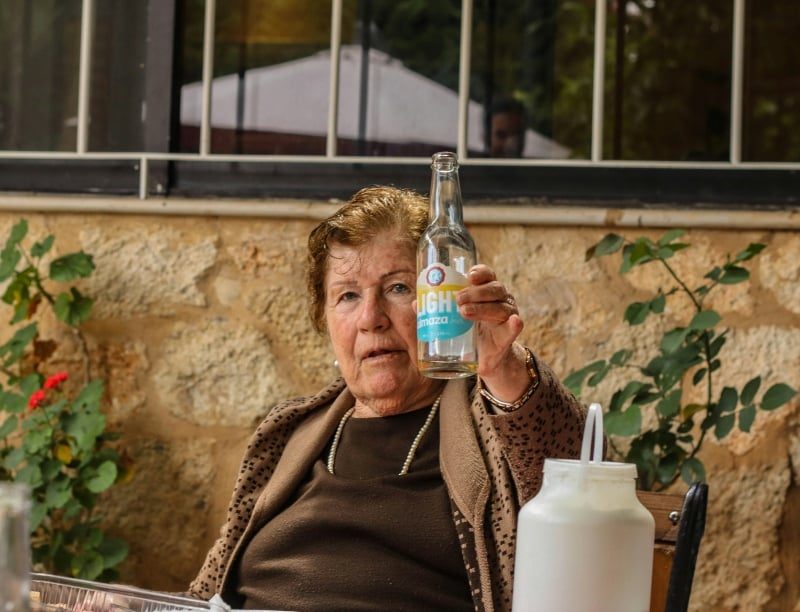In today’s fast-paced world, Young Men and Women face unique challenges that can take a toll on their mental health. Stress, anxiety, and depression are common concerns among this age group. While conventional therapies can be effective, it’s essential to explore alternative methods.
A recent article published on Wallstreet Journal.com “More Americans Seek Mental-Health Care, UnitedHealth Says “Rise in services for anxiety, depression, substance use helps drive higher healthcare costs”; helps to drive the narrative for Today’s discussion.
One statement that stood out to me was how insurer UnitedHealth Group, said that the percentage of people getting psychological visits and other services was up by double digits just since last year, and it believes the shift represents a long-term change.
Now coupled with the rising costs of gas, food, medicine, clothing, transportation, daycare, toiletries, social anxiety, higher education, and rent; it’s easy to see why exercise becomes the repellant for not pumping young men and women especially GenZ with antidepressant drugs.
Drugs such as Wellbutrin, Celexa, Lexapro, Prozac, Zoloft, Cymbalta, Marplan, Nardil, Effexor, etc.; are being used to combat these psychological ailments. I am not biased toward the expensive research and Big Business nature of pharmaceutical companies; believe that seeing a therapist once or twice a month can help in the stabilization of one’s mind and emotions.
As a naturopathic researcher specializing in the stress management of Gen Zers’, I believe in the power of exercise as a natural antidepressant, specifically walking. Walking has saved my life and has kept me out of the emergency room (outside of my foot fracture), behavioral health clinics, and psychotropic meds.
It may sound too good to be true, but I literally waltzed through this pandemic while walking as the central piece to my survival outside of vitamins, ginger tea, gratitude, prayer, journaling, a balanced diet, and meditation.
Did I get the Vaccine and boosters Yes, I did. And I still ended up getting Covid19 and Flu A (whatever that means) in back-to-back months in January and February of 2022. I was blessed to recover within a week from both situations so fast recovery was the key.
Understanding Depression in Gen Z:
Depression is not uncommon among Gen Zer’s, with increased academic pressures, social media influences, and uncertainties about the future. Traditional treatments often involve medications, counseling, or a combination of both. However, exercise offers a safe, accessible, and drug-free avenue that can provide substantial benefits.
I advocate big for “Walking” as the best modality for anxiety, depression, and the management of stress. Exercise is nothing new in the world of healing, wellness, and fitness. Tons of health and wellness magazines fill the shelves of newsstands. In addition, celebrities, athletes, and influencers all boast about looking good and feeling good.
Nevertheless, it’s the long-term management of a chaotic world that must be understood outside of short-term fixes. In the short term a 25-year-old may love to shop as retail therapy but what impact will that have on your mental health when you are 35? If you understood the connection between walking in your 20s and depression in your 30s how would your life change? Exercise?
The Science Behind Exercise and Mental Health:
Engaging in physical activity triggers the release of endorphins, often referred to as “feel-good hormones.” Endorphins interact with the brain’s receptors, reducing the perception of pain and promoting a sense of euphoria. This response explains the immediate mood-enhancing effect after exercise, making it an ideal natural antidepressant.
When you visit TikTok everybody seems to document their fitness journey and that is courageous and inspiring to millions. And yet, your journey is far different from living 5 days in the gym each week. But walking a few minutes here and there can add up to something that could lead to building more muscle and properly aligning your mind/body connection.
Moreover, exercise stimulates the production of neurotransmitters like serotonin and norepinephrine, which are closely linked to mood regulation. These neurotransmitters play pivotal roles in fighting depression and promoting mental well-being. Regular exercise promotes healthy levels of these neurotransmitters, thus acting as a powerful tool against depressive symptoms.
How Much Exercise is Needed for Antidepressant Benefits?
While any form of physical activity is beneficial, aiming for at least 150 minutes of moderate intensity exercise each week is recommended. For Gen Zer’s, participating in activities they enjoy, such as dancing, cycling, or team sports, can boost motivation and adherence.
Not only does exercise improve mental health directly, but it also fosters a sense of achievement and self-confidence. Engaging in physical activity provides an opportunity to set and achieve personal goals, which can significantly improve overall mood and self-esteem.
Exercise as an Adjunct Therapy
Exercise is not meant to replace conventional treatments for depression but rather complement them. Incorporating exercise into a comprehensive treatment plan can lead to better outcomes and enhance the effects of medication or therapy. Remember to consult with your healthcare provider to discuss exercise options suitable for your individual needs.
Building Healthy Exercise Habits:
To make exercise more accessible and sustainable, here are a few tips for Gen Zers looking to boost their mental health through physical activity:
1. Find what you love: Experiment with different activities and sports until you discover something that genuinely excites you.
2. Start small, and progress gradually: Don’t overwhelm yourself with unrealistic expectations. Begin with manageable workouts and gradually increase intensity and duration.
3. Create a routine: Consistency is key. Schedule exercise into your daily or weekly routine to ensure it becomes a habit.
4. Mix it up: Keep things interesting by trying different exercises or engaging in group activities to stay motivated and combat boredom.
5. Buddy up: Exercise with friends or join fitness communities to make it more enjoyable and hold each other accountable.
As a naturopathic researcher, I believe in the profound antidepressant effects of exercise. Incorporating physical activity into your life empowers you to boost your mood, reduce anxiety, and fight depression naturally. Alongside conventional treatments, exercise can play a significant role in enhancing the mental well-being of Gen Zers, helping them navigate challenges and thrive in today’s fast-paced world.
—
This post was previously published on Blkpostr Health.
***
You might also like these from The Good Men Project:
 .. In Modern Relationships, We Cheat Every Single Day
.. In Modern Relationships, We Cheat Every Single Day  Compliments Men Would Love to Hear More Often
Compliments Men Would Love to Hear More Often  .10 Things Good Men Should Never Do in a Relationship
.10 Things Good Men Should Never Do in a Relationship  It’s Not Just Sex That He is Longing For. It’s This
It’s Not Just Sex That He is Longing For. It’s This Join The Good Men Project as a Premium Member today.
All Premium Members get to view The Good Men Project with NO ADS.
A $50 annual membership gives you an all access pass. You can be a part of every call, group, class and community.
A $25 annual membership gives you access to one class, one Social Interest group and our online communities.
A $12 annual membership gives you access to our Friday calls with the publisher, our online community.
Register New Account
Log in if you wish to renew an existing subscription.
Username
First Name
Last Name
Password
Password Again
Choose your subscription level
- Yearly - $50.00 - 1 Year
- Monthly - $6.99 - 1 Month
Credit / Debit Card PayPal Choose Your Payment Method
Auto Renew
Subscribe to The Good Men Project Daily Newsletter By completing this registration form, you are also agreeing to our Terms of Service which can be found here.Need more info? A complete list of benefits is here.
—
Photo credit: iStock
The post Exercise: Nature’s Antidepressant for Stress Management appeared first on The Good Men Project.
Original Article










